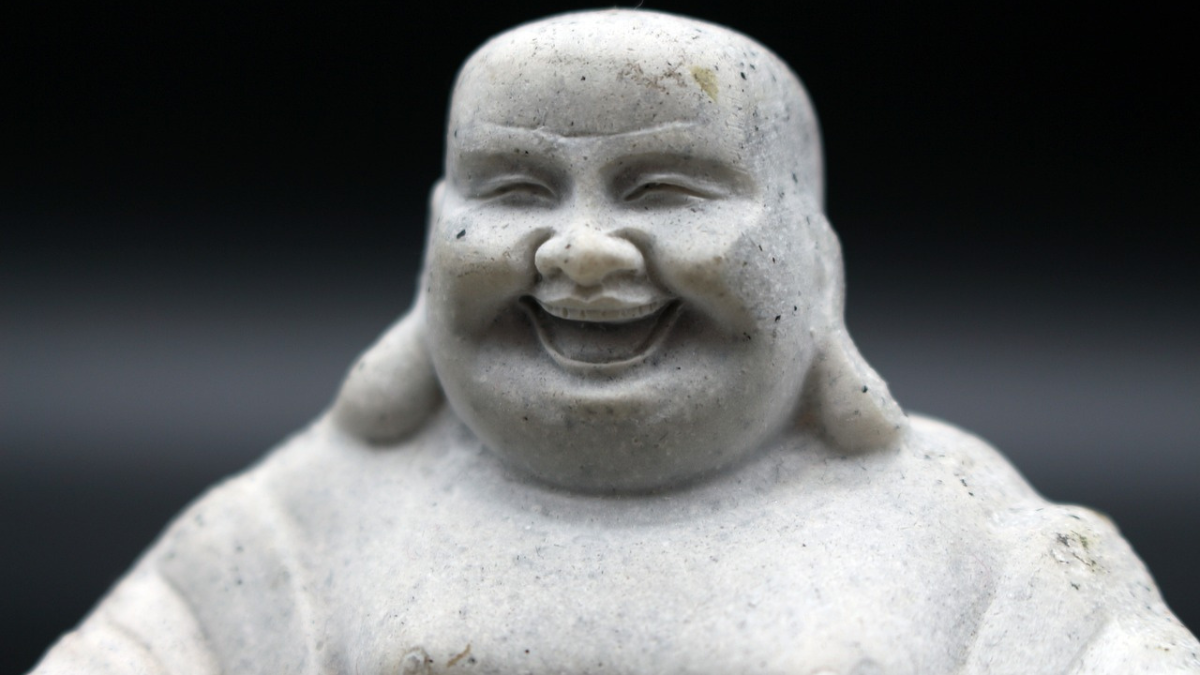‘Do I really look like that from behind?‘, I asked, upon seeing footage of me having the time of my life at my all-time favorite artist’s concert. Now all I could focus on were my back rolls.
I’ve had body issues before I knew what ‘body issues’ meant
Looking back, half of my concerns came from the beauty standards being shoved down our throats. A slimmer, leaner body is more desirable than a belly and a double chin. Generally, Thai males try to avoid being mistaken as the Laughing Buddha and I’m no exception.
The other half was generational trauma.
See, if I had to pick a defining characteristic of Thai families, it would be how normal it is for family members to comment on the younger ones: physical, financial, you name it. I grew up as a chubby kid and my Thai relatives reminded me of this constantly. My uncle told me that I was overweight and needed to exercise every chance that he got. To this day, my aunties (whom I adore) will comment that I look skinnier or fatter, depending on my current body shape, without fail. What’s the reason for such self entitlement? I like to think that it comes from a place of care; that Thai families want their offspring to be healthy, but aren’t aware of how they express it.
The seed was planted inside of me. I was only fourteen when I tried weight loss pills for the first time. I almost fainted on public transport due to dehydration. For the next decade, countless failed attempts at weight loss followed. That night at the concert was the last straw.
I figured out that I simply just couldn’t do it on my own
In January, I hired an online fitness coach. Maybe I’d take exercising and dieting more seriously if I paid for it. I started following workout programs and sending pictures of my diet to my trainer daily.
The first weeks were tough. A habit formed after a month, only for me to break it. Sometimes I’d be too drained from my day job that I’d slack off and break the streak. Other occasions, I wouldn’t tell my trainer about all of the things I had eaten that day. Then my self-disgust would rear its head.
Fast forward to earlier this month. My best friend invited me to a two-hour badminton session. The last time I played was almost a year ago before I started my fitness plan. We’d lasted an hour and I was panting for my life by the time it ended.
This time around however, I was significantly better — in how I did and how I felt. I felt fresh and pumped. My bestie took some videos of us playing and watching the footage back (coincidentally it was the same angle as the concert videos) I saw something that I haven’t seen in a concerningly long time.
I looked… Healthy. And yet, those feelings of self-doubt, insecurity and discontent still remained.
If my goal was to be healthier, I’d be happy by now
I thought that what I wanted was to be slim and lean. 3,500 baht and three months of exercise and sweat for happiness seemed like an even trade. I longed to prove my relatives wrong, that my new body could heal the inner child burdened by the weight of their comments.
Maybe it comes down to managing our expectations. Adverts, life coaches, inspirational quotes all urge us to work hard in order to gain hard, but it’s easier to feel like you’re failing the longer our unmet expectations go.
Focusing so hard on one thing to make us happy blinds us to the smaller achievements. Nowadays, I can lift increasingly heavier weights each week; I have less acne break-outs, and can play badminton with my friends. I feel proud to talk about my fitness journey and to be healthier overall.
I’m writing this as if I’m now 100% happy with my body, which is false, by the way. I’m still fighting my body dysmorphia every day and I’m still hurt from the comments that my relatives have made. But I’ve discovered that contentment can be found in the smaller achievements. Shifting my goals and recognizing that my body has become healthier has reminded me that I’m closer to the finish line than I was before. Maybe the real goal is the progress we’ve made along the way.
Featured image: Michael Urban / Pixabay

